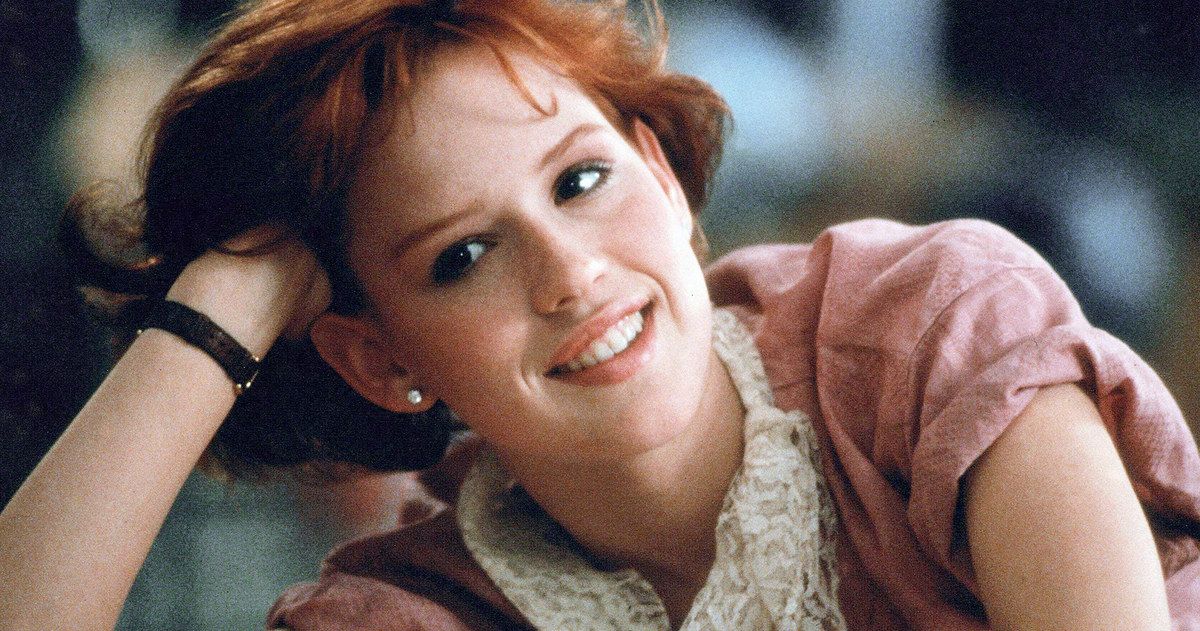John Hughes is the undisputed master of teenage movies from the 1980s, but the #MeToo movement has Molly Ringwald revisiting these comedic, sometimes romantic dramas through a new lens. Ringwald was Hughes' muse during the early 1980s, crafting Sixteen Candles and Pretty in Pink specially for her and having her star in The Breakfast Club. The actress reveals that she doesn't make it a habit to revisit or own films but admitted to watching The Breakfast Club with her 10-year old daughter after the little girl asked to watch it with her mother.
Molly Ringwald's daughter didn't pick up on much of the talk of sex or drugs, but she did reportedly have an issue with the scene where Judd Nelson's Bender character goes under the table and sees Ringwald's underwear. It's implied that Bender touches her inappropriately, and it got Molly Ringwald thinking about the #MeToo movement. She writes that it was a different time in the 80s when John Hughes made the movies, but the scene kept on haunting her. She had this to say.
"It's hard for me to understand how John was able to write with so much sensitivity, and also have such a glaring blind spot."
After thinking about the #MeToo movement further, Molly Ringwald decided to write the piece for the New Yorker, discussing watching The Breakfast Club and other John Hughes movies of the 80s with a different mindset. She went on to insinuate that the Hughes' movies were (not purposefully) part of a larger problem that has been reinforcing attitudes towards women for decades. Ringwald even brought up Harvey Weinstein when talking about her influence to write the article. She explains.
"I thought about it again this past fall, after a number of women came forward with sexual-assault accusations against the producer Harvey Weinstein, and the #MeToo movement gathered steam. If attitudes toward female subjugation are systemic, and I believe that they are, it stands to reason that the art we consume, and sanction plays some part in reinforcing those same attitudes."
There are some questionable scenes in a lot of the movies of the 1980s, but Molly Ringwald stuck with what she had participated in, which is the John Hughes movies. She points out the stereotypes of boys and girls, date rape in Sixteen Candles, the use of the word "fag" and "faggot," as well as racial stereotypes with a character like Gedde Watanabe's Long Duk Dong character with his name and driving capabilities. Ringwald had trouble coming out and criticizing Hughes, who died at age 58 in 2009, but she did, while also commending him for giving a voice to outsiders and making movies that teenagers have been relating to for decades now.
In the end, Molly Ringwald chooses to stick with the overall good that John Hughes contributed, and continues to contribute, to teenagers who are struggling with identity. However, she wants people to be aware of the flaws as well, to help ensure that stereotypes and the attitude towards women changes in the future. You can read the entire lengthy article that Molly Ringwald wrote about the #MeToo movement and John Hughes movies over at The New Yorker.

